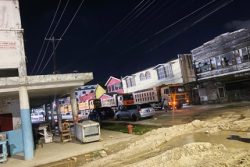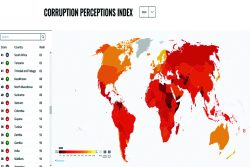Dear Editor.
Some have questioned the need for the CoI into the attempted heist of the March 2020 general elections. The first day’s testimony should have clarified why a definitive account from involved participants is needed. A COI is particularly suited to accomplish this task. It is not a Court-trial to punish persons alleged to have broken the law, yet those giving evidence are under oath. If they commit perjury they can be “prosecuted and punished accordingly”. Such accounts may allow institutions to deliver the justice they are designed to but are betrayed by citizens who staff them and who support leaders more concerned about pelf and power.
It is one of the consequences of the politics of populism – inherent in all ethnic politics – where demagogic leaders persuade followers in very simplistic terms that all their ills and discontent are due to the machinations of an “other” whose are oppressing them. Populist discourse, then is often couched in narratives of victimhood that juxtaposes “the oppressed” against “the oppressor” in both moral and emotional terms. From this formulation, the “solution” is justified that the “others” must be removed by any means necessary.
Burnham had simplistically buttressed his supporters’ fears that if Indian Guyanese were “allowed” to combine their economic aggressiveness with political power, they would be – to use Arthur Lewis’ phraseology – “annihilated”. Most of them became willing enablers as staff of all the institutions of the state that Burnham massively expanded –especially the bureaucracy, the armed forces and nationalised economy. Indian Guyanese were denied their fundamental right to choose their government when the state institutions were used to routinely rig elections. They lost their fundamental right to security as the police and army even aided and abetted “kick down the door bandits”.
But all those who perpetuated those acts were ordinary citizens, like the neighbours who expelled 3000 Indian Guyanese from Wismar in 1964. And it is this banality of evil that we have started to hear about, and will continue to hear, as the Commission continues its hearings. Let’s take the testimony of former Police Division 4 ‘A’ Commander, Edgar Thomas, who had been placed in charge of security of the GECOM Command Centre at the Ashmins building. Without getting into all the names involved but which are now on record, we heard of the GECOM Secretariat’s DCEO refusing to listen to the concerns of a Commissioner of GECOM – who was technically her superior – about the need to protect the security of the SOPs etc.
She was single-mindedly focused on removing all persons from the Center, putatively because of a “bomb threat”. This threat was later traced to a relative of a Permanent Secretary. Commander Thomas was also concerned about the security of the election materials, but he was incredibly overridden by a Junior Officer who was supported first, by a Dep. COP and subsequently the COP himself. Thomas was soon reassigned and effectively demoted.
The second witness was the new GECOM Secretariat’s CEO. He revealed that all the recordings from the cameras at the Ashmin Building has been erased from the storage devices and backup computers. This, of course, defeats the purpose the cameras had been placed there to begin with: to provide incontrovertible visual evidence of what transpired in the building. All of these actions were committed by persons who were supposed to act according to the rules of their state institutions but refused to do so. It can occur again even in the face of new rules and sanctions.
We have been arguing for decades that our state institutions must be more representative of our population’s composition. Because of our voting pattern, this would translate into representation for both major parties that are driven to populist mobilisations and discourage such “banalities of evil” by our state institutions.
Sincerely,
Ravi Dev







